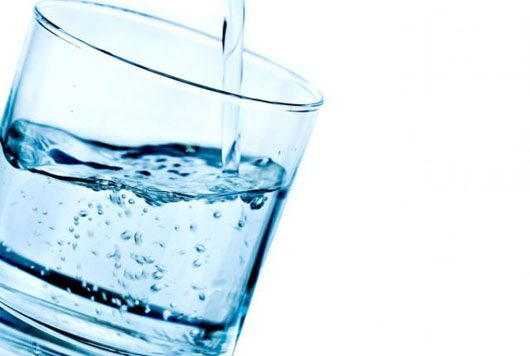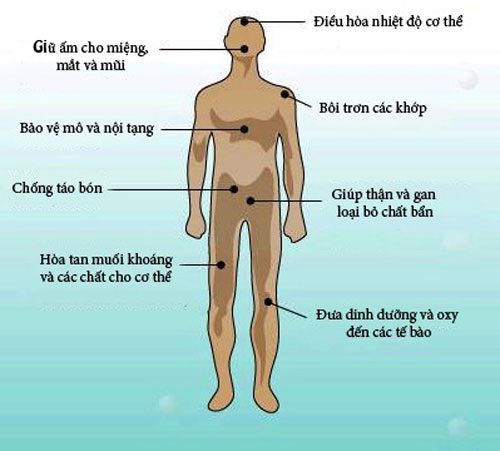How Long Can We Live Without Food and Water?
Have you ever wondered, experimented, or researched this question in books and articles? People often say, humans can survive without food for up to three weeks and without water for three days, but in reality, this ability is quite rare. Try testing yourself; one day without breakfast, and by 11 AM, you might already feel weak, fatigued, and ravenously hungry. Of course, the duration one can endure varies from person to person and depends on numerous factors, among which willpower plays a crucial role.
Willpower has enabled humans to achieve many remarkable feats throughout history. Thus, sitting at home with a refrigerator full of food is certainly not a conducive environment for such an experiment. This article aims to provide a better understanding of human survival capabilities in the absence of food and water.
Breathing, Eating, and Drinking: Essential Needs
The human body is composed of 60% water, 6% minerals, 16% fat, and 18% protein. This is a highly sophisticated biological machine with various organs and systems. To function, the “human machine” must be supplied with energy through metabolism, “burning,” and oxidizing food.
The respiratory system provides oxygen for the “burning” and oxidation of food, generating energy while expelling carbon dioxide. The digestive system supplies the “fuel” needed for energy production, which includes five essential food groups: carbohydrates (sugars, starches), proteins, fats (oils, greases), minerals, and vitamins. Therefore, breathing, eating, and drinking are vital requirements for human survival.
Nutritionists have calculated the daily requirements per kilogram of body weight: a minimum of 30 kcal for energy maintenance; 100-150 ml of water; 1-2 grams of protein; 3-5 grams of fat; and 6-10 grams of carbohydrates. Minerals and vitamins are trace elements that accompany the foods we consume.
Food Deprivation
Willpower and determination play significant roles in a person’s ability to fast. The longest fasting individuals are often political figures or those fasting for religious purposes, as well as people lost in nature who manage to survive after prolonged periods without food.
According to research, humans can survive for up to 8 weeks by only drinking water without eating; however, some individuals have exceeded this threshold, while others may perish just a few days later. This largely depends on one’s health condition. Healthy and overweight individuals tend to have better endurance, thereby increasing their chances of survival. When starving, we draw on our body’s stored energy for survival. This process begins with burning carbohydrates stored in the liver and muscles, followed by fats, and finally proteins. If you reach the point of utilizing protein for energy, your health situation has undoubtedly deteriorated significantly.

The body’s metabolic rate also significantly impacts starvation tolerance. If metabolism is efficient, the body can absorb nutrients better. However, in situations with no food available, you’d wish for the opposite. Metabolic rate also determines the speed of energy expenditure from the body’s reserves. Thus, a slower metabolism equates to slower energy consumption, slightly enhancing survival chances. During starvation, the body’s metabolic processes automatically slow down, a natural survival instinct in humans.
Environmental temperature also affects survival chances. In excessively hot environments, our bodies lose water more rapidly; in cold weather, we expend more energy, reducing survival capacity. However, extreme temperatures often present numerous other factors leading to collapse before starvation sets in.
As hunger begins, the initial signals your body experiences include fatigue, panic, trembling, and irritability. Following these initial reactions, sensory functions start to decline, leading to hallucinations, abdominal cramps, muscle spasms, and abnormal heart rhythms.
One of the most famous fasting cases is that of Indian leader Mohandas K. Gandhi, who fasted for 21 days. However, this is not a record for political fasting. In 1981, members of the Provisional Irish Republican Army, while imprisoned in Britain, conducted hunger strikes in protest, consuming only small amounts of water daily without any food. At that time, British Deputy Prime Minister Margaret Thatcher was determined not to yield to these political prisoners. The outcome was that ten individuals starved to death, with Kieran Doherty holding the record for the longest hunger strike at 73 days.

Water Deprivation
Humans can survive for extended periods without food, but the absence of water can quickly lead to downfall. Children left alone in cars under the sun or laborers working in extreme heat can die within hours without water.
Humans utilize water in the body for numerous functions, such as keeping the mouth and eyes moist, transporting nutrients and oxygen throughout the body, and more. We also have various mechanisms for losing water, such as urination, sweating, crying, and even breathing, all of which contribute to dehydration. In hot weather, we can lose up to 1.5 liters of water through sweat glands. Dehydration in hot conditions can lead to heat shock, which can be life-threatening.

When experiencing mild dehydration, saliva production decreases, and so does urine output, resulting in concentrated urine with an unusual color and unpleasant odor. In cases of severe dehydration, you will experience dryness in the mouth, difficulty urinating, dry eyes that sink into the sockets, and an increased heart rate. Once severe dehydration sets in, you may become unable to urinate (anuria), experience hallucinations, irritability, vomiting, and diarrhea. The final stage of dehydration is circulatory shock, with pale and cold skin.
The average person can only survive between 3 to 5 days without water. Similar to food deprivation, healthier individuals can survive longer. The longest recorded survival without water belongs to Mitsutaka Uchikoshi, a Japanese man who, after an accident in Rokko Mountain in October 2006, fell and lost consciousness for 24 days before being rescued. When found, his body temperature was only 22°C, with a weak heartbeat, and his bodily organs had ceased functioning. Doctors later examined Uchikoshi and found no brain damage; they attributed this to a rare occurrence of hibernation-like state, which ultimately saved Mitsutaka Uchikoshi’s life.
Sometimes, people fast to lose weight or, for some religions, fasting is a means of cleansing the body and achieving purity. However, you should never experiment with dehydration, as it can cause severe harm to your body.


















































